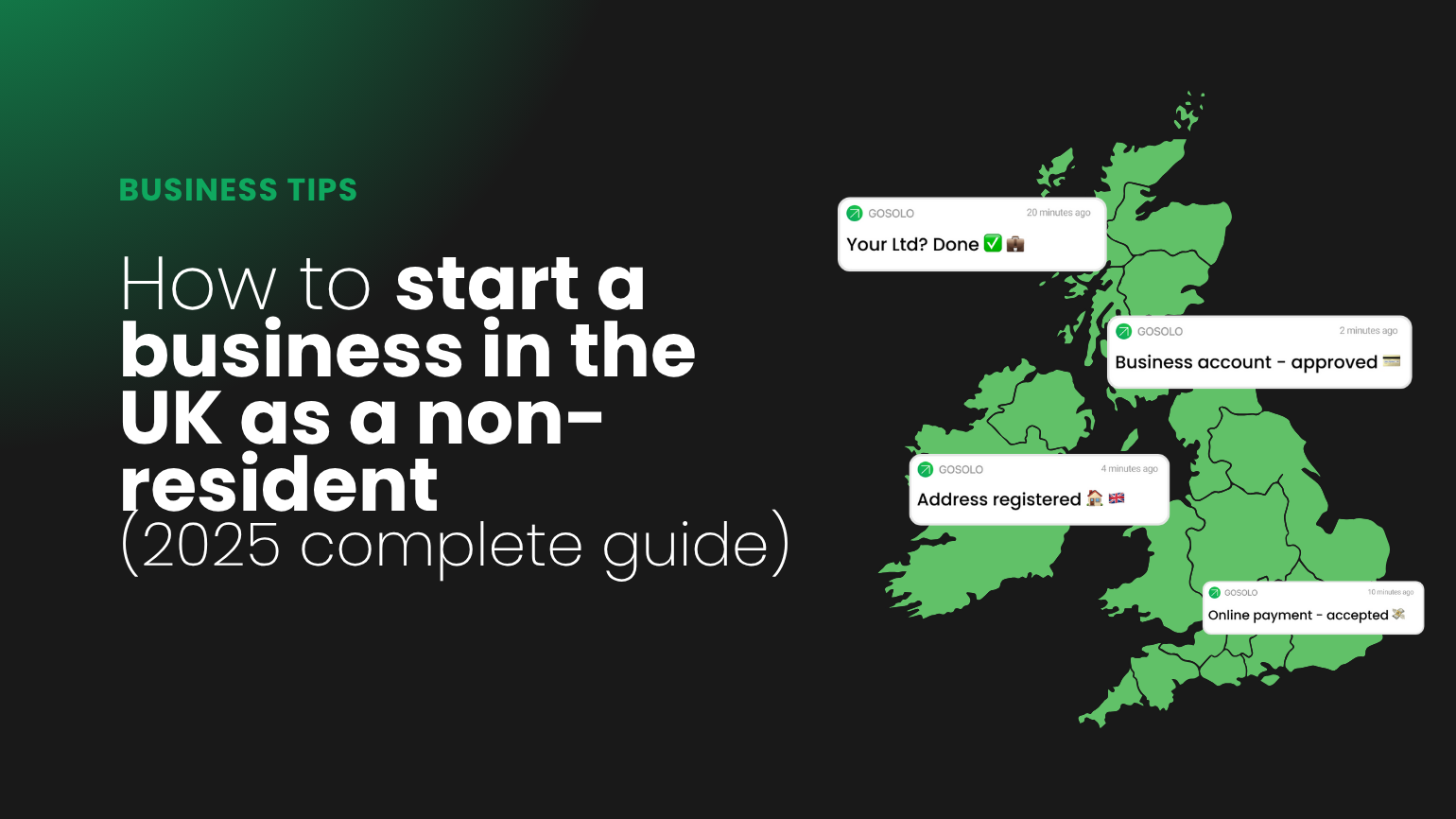⚡ TL;DR: You don’t need to live in the UK to start a business here. This step-by-step guide shows how non-residents can open a UK Limited company online — including legal requirements, formation process, business account setup, and how GoSolo makes it simple from start to finish.
However surprising it might sound, yes — it’s possible to open a business in the UK for non-residents. What’s even more surprising is that you don’t even need to have any UK documents. And guess what? You don’t even have to hire a solicitor to do everything remotely.
All this sounds quite promising, but one fact remains firm: you won’t do it successfully without the right helping body and knowing specific steps. Luckily, GoSolo is here for you and is eager to reveal those steps.
UK Business Structures: What’s Allowed for Non-Residents
Before we start breaking down what exactly you need to open a company as a UK non-resident, we need to understand the local business ecosystem first. So, in the UK, similar to other countries, several forms of business can operate:
- Ltd Company
- Sole Trader
- LLP
- Overseas Branch
Your choice of the business type depends mainly on the peculiarities of your company’s structure. Depending on its scale, revenue, legal features, personal liability, and desired taxation policy, your non-resident business might opt for different options, but take into account that the Sole Trader type is excluded. Why?
Although the Sole Trader or Sole Proprietorship form is the simplest way to operate a business in the UK, since it’s designed for individual entrepreneurs, and therefore makes no distinction between you and your business, as a foreigner and non-resident, you cannot open it.
The trick is that a National Insurance Number (NINo) is required for that form of ownership, and NINo can be claimed only by UK residents. You need to have a UK address and a special visa if you are not from the UK.
GoSolo specialists suggest that, as a non-resident, you should opt for the Ltd company structure. One reason is that, unlike LLPs, Ltd companies are more private and don’t have their information disclosed. Additionally, an Ltd is more flexible in terms of management because with an LLP, you need to have at least two designated partners.
Let’s take a closer look at different aspects of registering and managing various forms of business.
|
Feature |
Ltd Company (Private Limited Company) |
LLP (Limited Liability Partnership) |
Overseas Branch (UK Branch of Foreign Company) |
|
Legal Entity |
Separate legal entity in the UK |
Separate legal entity in the UK |
Not a separate entity; an extension of a foreign company |
|
Formation Requirements |
- One director (can be non-resident) - Registered UK address - Companies House registration |
- Minimum two members (can be individuals or companies) - Registered UK address - Companies House registration |
- Register as an "overseas company" - Provide details of the parent company - Must file certified documents |
|
Scale Potential |
High – widely used for startups and SMEs; attracts investors |
Moderate – often used by professionals, less suited for large scaling |
Limited – less flexible; not attractive for local investors or fundraising |
|
Risk for Non-Residents |
Low – liability limited; clear separation from the owner |
Low – liability limited to contributions |
High – foreign parent company directly exposed to legal/financial risk |
Overall, Ltd is the best option in terms of business scaling and risk management, while securing a strong presence in the UK.
Non-UK Resident Company Registration: Requirements for the Ltd
Since we’ve decided that Ltd is the best business structure type for non-residents who want to do business in the UK, let’s dwell more on what you need to start a private limited company. Obviously, no visa or UK citizenship is required. But still, you have to adhere to certain norms, which include the following:
- Your Ltd company has to have 1 director. A director can be a non-resident as well.
- 1 shareholder can share the position of a director at the same time.
- A UK-registered address is necessary; however, unlike with the sole trader, you can opt for a virtual address.
- Business SIC code.
For non-resident businesses that make business supplies, the registration of Value Added Tax (VAT) is necessary. The requirement is obligatory only for certain types of businesses with a taxable turnover of over £90,000. An accountant is also an optional requirement that depends on the business type.
Avoid the £4,000 Mistake: Solicitors and Law Firms
There are two most common mistakes of entrepreneurs. The first is that many believe that they can handle everything on their own. The second one is that a fairly large number of company owners think that they need expert consultancy in everything, even the most basic things. Usually, the truth is somewhere between those two extremes.
The issue with the second pitfall is that you might not need consultancy in certain areas, but you decide to waste your money instead of investing it in future scaling. This is often what happens with those who try to register Ltd companies in the UK via solicitors.
Basically, what solicitors do is just register your company, virtual address, and open a bank account. These are basic steps that don’t require any sophisticated expertise — just attention and patience. Indeed, the registration of a bank account might be challenging, because you need to provide proof of business, but it isn’t worth £3,000–£5,000+ that a solicitor will ask, is it?
That’s why we suggest that you should opt for a better solution: do it on your own or ask for help from GoSolo. GoSolo will achieve the same outcomes as solicitors but, unlike them, will charge only £500, saving you up to £4,500, which is a considerable amount, especially for small businesses.
GoSolo Opens Businesses in the UK for Non-Residents
When it comes to opening a company, many future entrepreneurs, especially non-residents, think they will have to do a lot of complex paperwork and make many visits to government institutions. However, this was relevant in the past, in the age without different online services that simplify everything and make the whole process as smooth as possible. GoSolo is one such service.
The biggest advantage of GoSolo is that it offers an all-in-one solution. Some services might quickly open a bank account but fail to register a virtual address. Others might be quite effective in terms of company registration, but don’t deal with a virtual UK address. GoSolo has it all.
You don’t need to move to or even visit the UK to open an Ltd company with GoSolo. Everything is completed online through a simple eligibility check and a quick identity verification process. Unlike traditional routes that may take days or weeks and involve physical meetings, GoSolo allows non-residents to open and operate a UK-based Ltd company from anywhere in the world.
Perhaps you have heard about other services and ways to start a company in the UK for a non-resident. What makes GoSolo a fair competitor against them? Let’s find out in this comparison table.
|
Feature |
GoSolo |
Wise (Business Account) |
Traditional Agents |
Solicitors |
|
Company Registration |
✅ Included |
❌ Not offered |
✅ Offered |
✅ Offered |
|
Virtual UK Address |
✅ Included |
❌ Not included |
✅ (usually extra cost) |
✅ (usually extra cost) |
|
Business Account |
✅ Included |
✅ UK account available |
❌ Must open separately |
❌ Often not included |
|
Non-UK Resident Support |
✅ Tailored for non-residents |
⚠️ Partial support |
⚠️ Varies widely |
⚠️ Expensive & case-specific |
|
Remote Setup |
✅ 100% online |
✅ Online for the account only |
❌ Often requires physical documents |
❌ May require appointments |
|
Cost & Simplicity |
✅ All-in-one, transparent |
⚠️ Account only, limited features |
⚠️ Add-on services required |
❌ High fees, complex process |
Virtual Address: A Legal Requirement for the UK company formation for foreigners
Many beginning entrepreneurs confuse the requirement for a registered office with the obligation to be a resident of the UK. In fact, these are two different concepts, meaning non-residents can also register an office in the country.
You need to have a registered office for your Ltd company for two major reasons:
- To provide an official address at the stage of registration with the Companies House;
- To ensure official correspondence and smooth communication with such bodies as His Majesty's Revenue and Customs (HMRC), responsible for taxation.
When opening a business in the UK, it’s important to understand the difference between a registered office and the concepts of a Service Address and a Trading Address. While a registered office is used for legal correspondence and publicity, Service Address and Trading Address have their peculiarities:
Service Address: It is an address not of your company but of every individual listed in the company record and is used for official correspondence as well. A service address is distributed among individuals like a company director, a company secretary, or any other PSC (Person with Significant Control).
Trading Address: It is more relevant for your clients and partners because this address denotes the place where a company conducts its activity. From that perspective, if you run an online business or provide services rather than physical goods, you don’t need a trading address. That is why it’s not even required while registering your company in the UK.
To fulfil the requirement for the registered office, GoSolo offers its customers the service of a Virtual Office. Basically, a virtual office is a real business address in London that the authorities and partners will use to send official correspondence. The advantage of the GoSolo virtual office is that it can be registered online without the need for you to travel to the UK. While operating remotely, the GoSolo virtual office doesn’t cause any mail delay — any correspondence will be forwarded to you the same day.
Business Bank Accounts: What Works for Non-Residents
As mentioned above, opening a bank account might be challenging for a non-resident. The issue with registering there is that UK traditional banks, like HSBC and Barclays, have very severe regulations when it comes to onboarding new clients from abroad. They mostly do not support users who don’t have permanent residency in the country because such clients are believed to pose a higher risk of money laundering.
Luckily, there are some fintech solutions, with the intermediary of which a non-resident can avoid such accusations and open a standard bank account. Among the most effective tools, you should consider:
GoSolo: The biggest advantage of GoSolo is that it provides an all-in-one solution. In other words, when you claim its services, you not only get a UK business bank account registered, but also open the Ltd company with a legal address, fulfilling all the legal and taxation requirements.
Wise is a good solution if you need to open an international bank account with a UK bank. Banks like HSBC, Barclays, Lloyds, and NatWest offer international or expat bank accounts designed specifically for non-residents. They are easy to open if your home bank has a corresponding banking relationship with the chosen British bank. If not, you can do this via Wise, but take into account that Wise doesn’t offer such possibilities in terms of company formation and registration. It’s considered a banking solution for individuals.
Payoneer is another convenient online solution for smooth international payments. However, when it comes to operating a company, Payoneer comes with a big drawback — its capabilities are limited. Payoneer is designed for e-commerce businesses only, so if your company operates in a different field, you should opt for another solution.
Revolut is believed to be quite a smooth online payment system that offers different international accounts. However, many users complain that it comes with a tedious KYC policy, especially for business accounts. Your account might be banned for a while if you fail to prove the source of your revenue.
UK Tax and Legal Obligations
Despite being a non-resident, you still have to follow tax and legal obligations once you start a company in the UK. It is crucial to be aware of those obligations before you open your business because, as in any other country, there are different tax obligations for different types of businesses, depending on their specialisation and revenue. Thus, it’s vital to adhere to those requirements to avoid any legal issues and complications with the UK authorities.
The first thing you need to understand is that when you establish an Ltd company, you will be eligible for the corporate tax. This is the primary taxation form applied to that type of business in the UK. The corporate tax rate in 2025 varies, depending on the company’s yearly profit. You can count on the frame of 19%-25%.
The percentage is up to the amount of profits your company generates on an annual basis. For low-income companies, the lower tariff is applied, while those who earn more are obliged to pay higher taxes.
Also, you should take into account the fact that all UK-registered companies must register for corporation tax and file a Corporation Tax Return each year with HMRC, even if they don’t owe any tax.
One more important obligation any UK-registered company should be aware of is called the Value Added Tax (VAT). Normally, most goods and services are charged at the standard rate of 20%. This tax seems to increase the pressure on your business. However, the good thing is that it’s not obligatory for all Ltd companies.
When you own a UK-registered company, you can decide on your own whether you want to pay VAT. This, however, is only relevant for those businesses with an annual turnover below £90,000. However, once this threshold is crossed, registration becomes mandatory. Businesses below this limit can still choose to register voluntarily to appear more established or reclaim VAT on business expenses.
When it comes to tax and legal obligations, it’s important to specify that non-UK residents who own UK-registered companies can enjoy some individual benefits unavailable to UK citizens and residents. One such benefit is that non-residents usually are not liable for UK personal income tax.
Nonetheless, you should be aware of the fact that once you receive a salary or dividends from a UK company, this rule might become irrelevant to you. The tax rate on salaries is charged based on the salary amount. If it’s up to £12,570, there is a personal allowance and the tax rate is 0%. Once the salary hits the threshold of £12,570, the basic rate of 20% is applied. The higher rate of 40% is charged for salaries over £50,270.
In addition to taxes, there are compulsory annual filings that every UK company must submit:
- Confirmation Statement. This is submitted annually to Companies House and confirms basic company details such as the registered address, directors, shareholders, and share structure. Even if nothing has changed, filing is still required because this is how the authorities keep track of the activities of your company. This legal information should be updated every year.
- Annual Accounts. These provide a financial overview of the company’s performance and must be filed each year with Companies House. The level of detail required depends on the company’s size. Usually, they consist of a balance sheet, profit and loss statement, and a director's report. Take into account that this mandatory filing should be executed within nine months of the company’s accounting period-end.
- Corporation Tax Return. As mentioned, this must be filed with HMRC and includes profit figures and tax calculations.
Why does your company have to meet all these obligations and deal with compulsory annual filings? Because the failure to adhere to this requirement leads to fines and penalties. You can rely on the support of professional consultancy to make sure all tax and legal obligations are met.
Step-by-Step: Remote Non-Resident Company Registration UK
Since you already know the key peculiarities of registering a company in the UK for non-residents, and once you are aware of tax and legal obligations, you can start making your first step. Well, actually, there are only 9 steps between you and your dream business in the UK.
These are the following:
- Pick a name. Of course, you want your company to be recognisable. For that, you need to work on your brand, and the first step is to choose a memorable name for your company. This step is important in terms of both legal compliance and brand identity. Opt for a brief and easy-to-remember name.
- Choose shareholder/director. You need to provide local authorities with the information about the person liable for your company. And here is the advantage of the Ltd form of business since, in the UK, you can be a sole director and shareholder of the Ltd company and don’t have to involve any partners.
- Get a virtual registered address. It was already mentioned that the virtual address is a real street address that can be used during registration to give an address for official communication. The simplest way to get a registered office with a virtual address is to do this via GoSolo.
- Register the company. The UK law allows self-registration without the involvement of solicitors. Depending on the business peculiarities, this process might take up to 15 days. You just need to fill in the application for Companies House. The other option is to pay $499 for the business account package via GoSolo, and they will do everything from registering a company to getting paid in various ways, both online and offline.
- Open a bank account. You can open a bank account either through GoSolo in a business package or via other international fintech solutions like Wise, Payoneer, and Revolut. Compare fees and features to see which option is the most viable for your company.
- Set up payments/invoicing. To ensure smooth financial transactions, set up a reliable payment and invoicing system. This includes choosing a secure payment platform, creating clear invoice templates, and setting consistent payment terms for clients or customers.
- Register for VAT. This step is obligatory only for companies with a tax turnover exceeding 90,000 pounds. For low-income businesses, this step is not mandatory.
- Keep annual filings on track. In order to avoid fees and penalties, make sure you deal with the annual filings correctly. Don’t forget to send them in within the predetermined deadlines and make sure to include all the required data.
- Grow and scale. Opening a company in the UK for non-residents gives you access to a broader market. Use this opportunity to scale your business and move it to new heights. Meet new investors and explore company-boost opportunities that will enable consistent growth and success.
Real User Examples
Nice words and eloquent expressions are, of course, good, but they should be supported by some real-life facts and examples. GoSolo has a solid number of cases to be proud of. If you want to be the best, you should learn from the best. So grasp their experiences and see how GoSolo helped those businesses reach new heights.
You don’t have to run huge-scale operations to be able to start a business in the UK. All you need is some talent and a bit of exclusive services or offers. This is what helped our client from Ukraine to fulfil his potential at his best. Who would have thought that a simple freelancer from a war-torn country could establish his own business in the UK and receive client payment in Great British pounds? With GoSolo, such cases become a reality!
Obviously, a Ukrainian freelancer has a limited opportunity to move to different countries. That’s why starting the UK Ltd to reach the British audience through GoSolo was the only viable choice. GoSolo managed the office and Ltd registration, as well as bank account opening. No solicitors were involved.
With all due respect to Ukrainian freelancers, GoSolo also has expertise in managing operations for businesses on a larger scale. One Polish agency that deals with physical goods is quite a decent example of how GoSolo services truly help businesses become international.
The problem with that Polish agency was that due to different legal regulations on sales in the EU and the UK, the company couldn’t conduct cross-border sales. Obviously, it was a huge barrier on their way to scaling; that’s why they decided to give it a try and address their issue with GoSolo. No, since the agency has an officially registered Ltd in the UK, cross-border sales are safe, smooth, and profitable.
Registration of a company as a non-resident in the UK is useful not only from the perspective of exploring a new market, but also in terms of getting a sufficient boost to the existing business. This is exactly what happened to one SaaS startup from Georgia.
The thing is that the UK taxation system is very attractive for international investors. Saving up some money on taxes means that businesses can reinvest in their own scaling. Thus, Georgian SaaS decided to open a company in the UK that would look more attractive to international investors.
And it actually worked out! The startup managed to enhance its budget through the UK-based company, while many investors explored a worthy technological project.
FAQs
Can I open a UK company without a UK visa?
Yes, you don’t have to be a UK resident to open a bank account and register your business, whether Ltd or LLP, from abroad. All you need, except a bank account, is an officially registered office that will serve as your legal address for correspondence.
Can I open a UK bank account remotely?
The UK law allows the registration of a bank account without the intermediacy of solicitors. If you want to do this remotely, you can opt for the different FinTech solutions, like Wise, Payoneer, or Revolut. However, they only manage bank accounts, whereas GoSolo offers an all-in-one solution.
Do I need an accountant?
This requirement is not mandatory, but it’s recommended to ensure smoother business flows and operating under UK law.
What’s the minimum capital?
£1 is enough to register your business in the UK as a non-resident.
Do I need VAT?
VAT is mandatory for business supplies and only for those who hit the £90,000 threshold of taxable turnover. For anyone else, this requirement is not obligatory.
Start UK Business Now with GoSolo
Open a business in the UK for non-residents. All you need to do this from any corner of Europe is just go to the GoSolo non-resident plan.
Already running a business? Handle money and accept payments in one app.
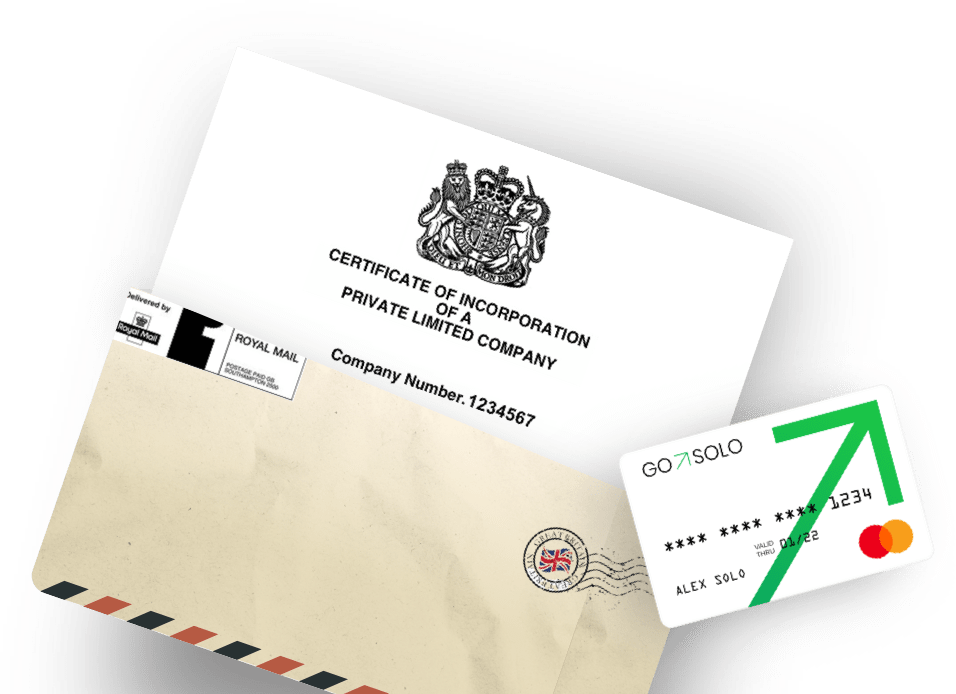



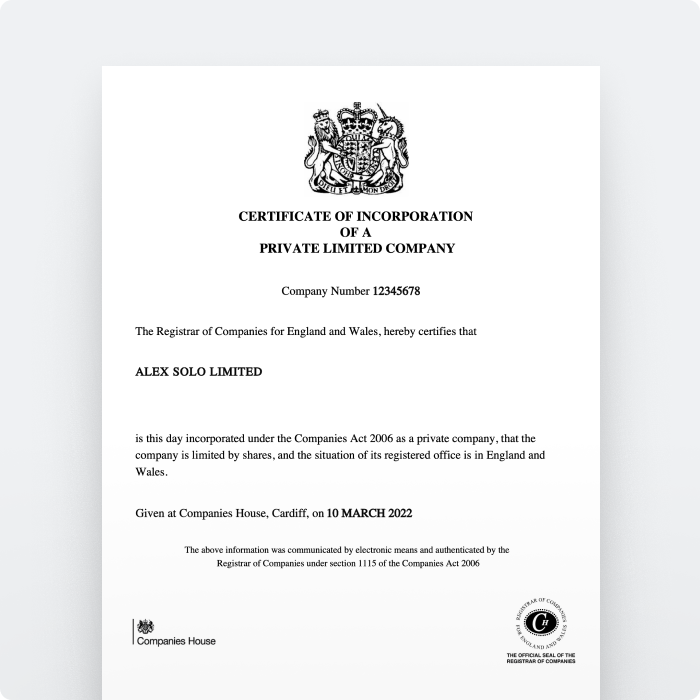


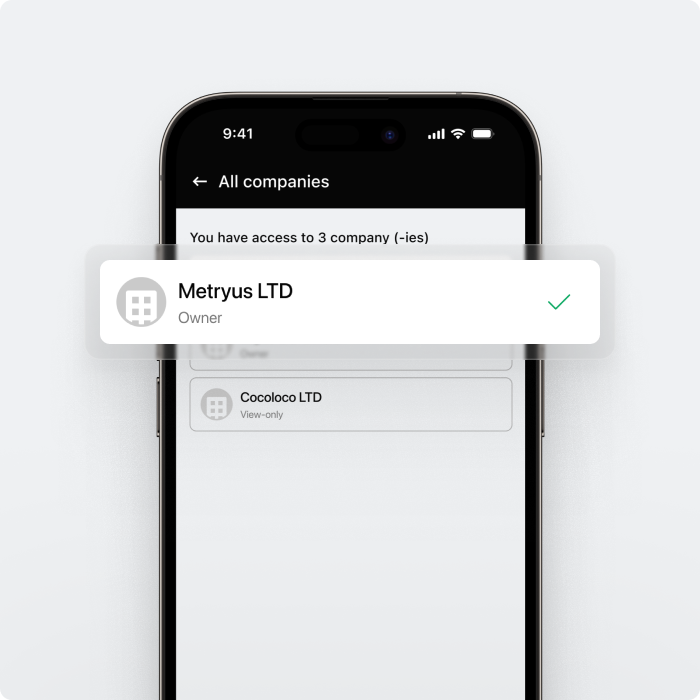
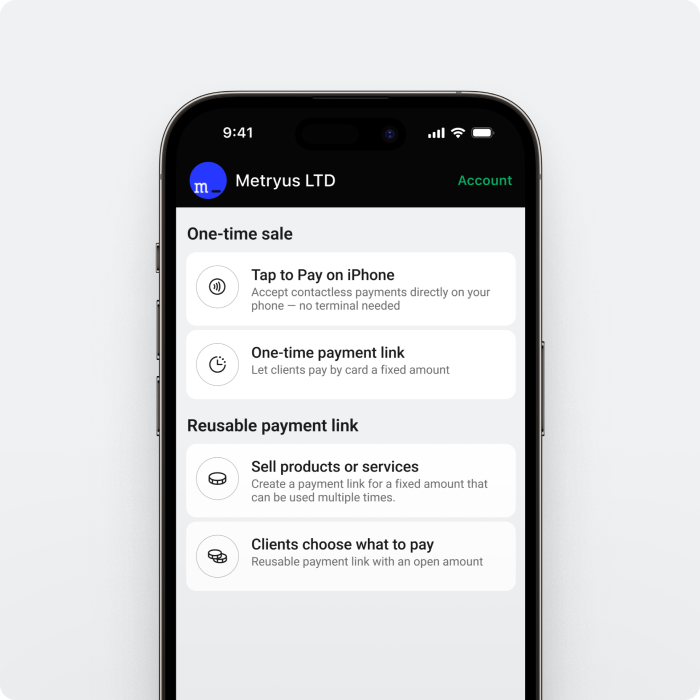












 Back to Blog
Back to Blog